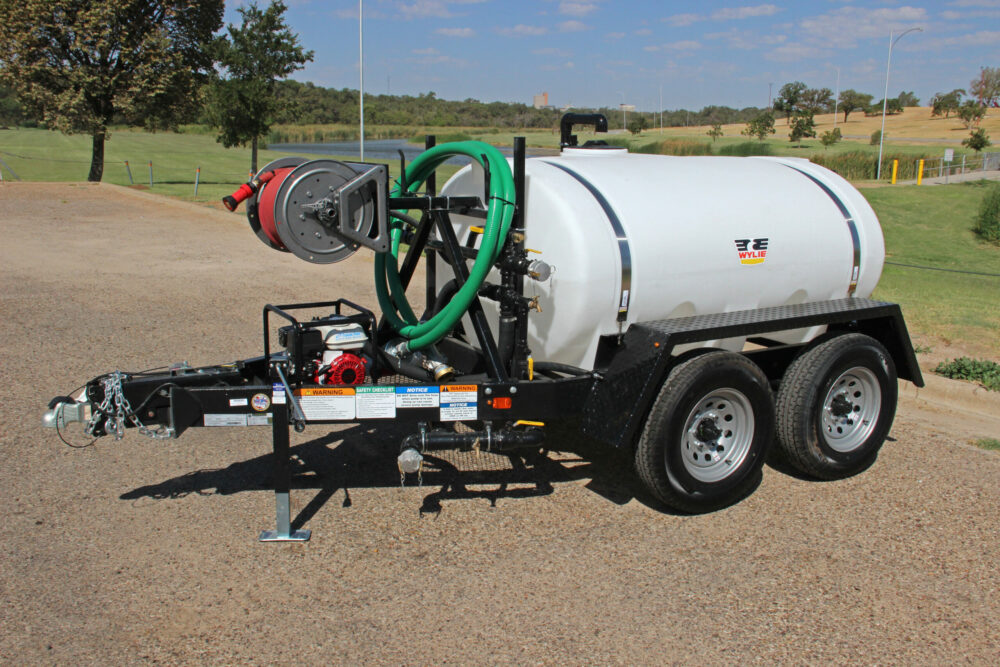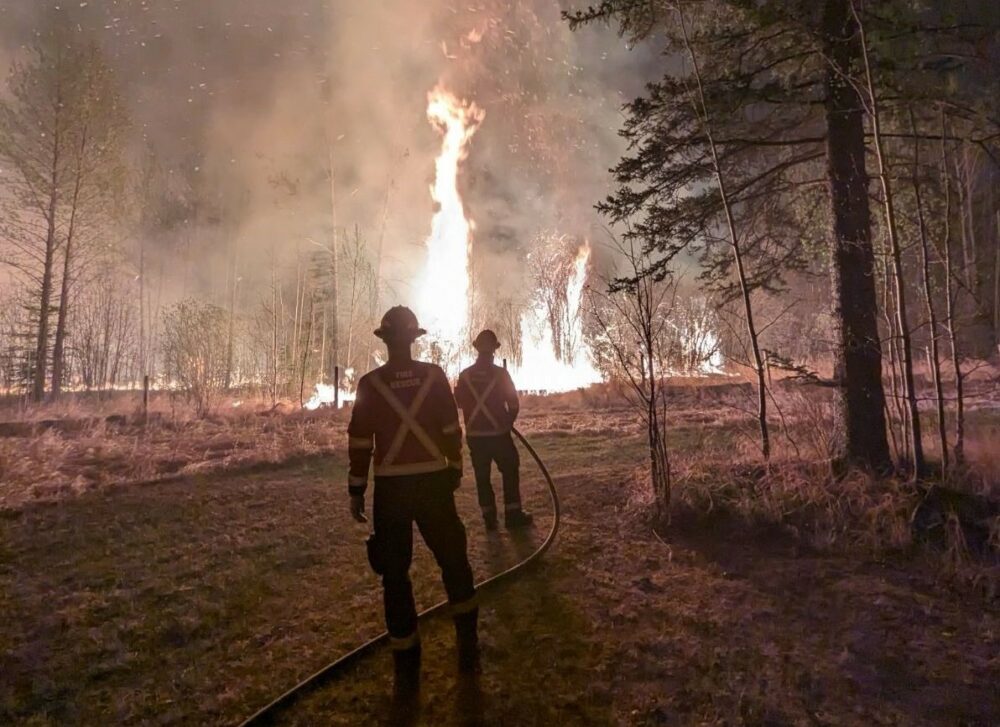In this insightful interview, Rory Campbell sits down with Jeff Grubbs, Senior Health and Safety Manager at North Shore, to explore the company’s comprehensive strategies for fire safety and prevention. With over three decades of experience spanning various fields, Jeff shares his expertise on mitigating wildfire risks, adhering to legislative protocols, and ensuring the well-being of field staff during fire season.
Background
Rory Campbell: Thank you for joining us, Jeff. To start off, could you tell us about your journey at North Shore and your current role?
Jeff Grubbs: Certainly, Rory. I’ve been the Senior Health and Safety Manager at North Shore since June of 2014, overseeing health and safety protocols for nearly a decade now.
Rory Campbell: Impressive tenure, Jeff. Now, could you provide us with some insight into your background? It seems quite diverse and extensive.
Jeff Grubbs: My background spans various fields, including drilling rigs, service rigs, carpentry, facility maintenance, parks and recreation, heavy equipment operation, truck driving, industrial cleaning, HazMat Emergency Response, HazMat Abatement, catalyst handling, high-risk inert confined space entry, petroleum refining, industrial safety training, water and wastewater treatment, and environmental remediation and reclamation. I’ve been involved in health and safety for over three decades, transitioning from operational roles to professional positions about 20 years ago.
Key Strategies and Measures
Rory Campbell: Your breadth of experience is evident, Jeff. Let’s delve into North Shore’s strategies for fire prevention and safety. Can you explain some key measures the company takes in this regard?
Jeff Grubbs: Certainly, Rory. As March 1st to October 31st are wildfire season in Alberta and BC, and to a lesser extent in Saskatchewan, we have developed protocol around Wildfire Awareness, and Fire and Explosion Prevention. Much of the focus for field work is on our use of heat generating equipment with the potential to start fires (e.g., ATVs, UTVs, and pickup trucks) that enter remote forested and grassland areas. We closely monitor the fire conditions, fire activity, fire bans, and other restrictions and requirements imposed by various government jurisdictions and municipalities throughout the season and adhere to that protocol. We also ensure that we meet the requirements for the jurisdiction we are working in regarding on-site firefighting equipment (e.g., water tanks, pumps, fire hose, shovels, axes, etc.) that are required based on the size and scope of a project.
Rory Campbell: In terms of employees working in the field during fire season, what measures are in place with respect to postponing work due to potentially unsafe conditions?
Jeff Grubbs: I’m glad you asked – while our industry provides essential services/work, we can postpone work without creating critical problems. This is important when the work we do could potentially add unnecessary risk to an ongoing wildfire problem. On the same terms, if our workers feel that the hazards associated with the projects that they are assigned could put them in harm’s way, or put the environment at risk, they are able to make the decision to reschedule work and stay out of problem areas. We can say that they have the Right to Refuse Unsafe Work, but at North Shore, this is an expectation.

Legislation and Protocols
Rory Campbell: How does North Shore stay on top of legislative changes related to fire safety and prevention?
Jeff Grubbs: We use several different sources that monitor and issue notifications on these matters. For example, HRdownloads provides us with proposed and new legislative and compliance changes and has a comprehensive comparison tool between the different jurisdictions. There are also many industry sources we monitor for updates and changes in legislation and industry best practices as well, such as Energy Safety Canada for one, who represent much of our clientele.
Rory Campbell: That all makes sense. For North Shore’s offices and field staff, are there particular codes or protocols that are referenced?
Jeff Grubbs: When focusing on fire safety at our facilities, we primarily refer to the Fire Codes and Building Codes for the applicable jurisdiction to develop or revise our own practices and policies. Municipal Affairs and the Safety Codes Council develop National Fire Code (Alberta Edition) STANDATAs that we refer to as well when we develop or revise our protocol. With respect to our field work and protocol around wildfire issues, we monitor the provincial wildfire status dashboards for information and protocol requirements to guide us in our activities. We also monitor specific municipal or regional sources in the areas we plan on providing service to as well.

Wildfire Smoke and Fire Prevention
Rory Campbell: It sounds like a comprehensive approach, Jeff. Can you comment on wildfire smoke, as well as some preventative measures taken?
Jeff Grubbs: With wildfires raging throughout the areas where we work, our biggest challenge as an employer is ensuring the well-being of our field staff and contractors. Wildfire smoke can cause a variety of symptoms, such as chest pain, coughing, congestion, fatigue, headaches, irritated sinuses, rapid heartbeat, runny nose, scratchy throat, shortness of breath, stinging eyes, and wheezing. These are some of the things we ask our workers to be aware of and report to us without delay. North Shore will not hesitate to postpone projects or suspend work in progress when employees and subcontractors exhibit signs of over-exposure or experience symptoms due to wildfire smoke. We do not have control over the wildfire itself, but we can choose when and if we are going to allow exposure to our workforce. We can ensure our workers are protected by using effective work scheduling to minimize exposures, provide necessary Personal Protective Equipment (PPE) (e.g., respiratory protection), along with training and education.

Success Stories
Rory Campbell: That proactive approach is commendable, Jeff. Can you share a notable fire prevention project you’ve been involved in, and what made it successful?
Jeff Grubbs: At one point in my career, I played a dual role as Health and Safety Manager, and Operations Manager of 10 industrial camps in the Fort McMurray and Conklin areas. Our camps were situated in remote areas that were heavily forested. In 2011 there were several out-of-control fires in the regions of a few of the camps that required full evacuation. However, we negotiated with the authorities to allow skeleton crews to remain at the sites to protect our assets (the multi-million dollars camps). We acquired several water trucks, drew permits to allow sourcing water from certain natural water courses, trained our maintenance staff—who volunteered to stay on site—in the operation of these water trucks. We created SOPs for the various wildfire prevention strategies, affixed water cannons to the top of the truck tanks, then had the maintenance staff drive around the perimeters of the affected camps at set intervals to spray the ground from the camp structures to the tree line, and the roofs of the camp modules to keep everything wet and battle the sparks floating in the air.
Rory Campbell: Impressive problem-solving, Jeff. Was there any material damage to the camps or associated infrastructure?
Jeff Grubbs: Although we had some paint damage (scorching) to the exterior walls of some camp modules, we were successful in staving off the loss of three of our camps from the wildfires that came within 11 feet of our camps. Two of the camps required extensive ground cleaning of fallen trees and several inches of ash covering absolutely everything outside, but the camps were eventually reopened and fully functional. As a result of the challenges we faced, we were able to extend the boundaries of our lease sites to add 25 more feet of buffer between our camp structures and the tree lines. We also created a 30-foot zero vegetation buffer within those perimeter areas to aid in fire control.

Memorable Experiences
Rory Campbell: Lastly, could you share a memorable lesson or experience from past fire prevention projects?
Jeff Grubbs: Certainly, Rory. An interesting aspect of “fire” that I discovered personally during fighting a fire is that sound is disrupted by the flame and does not travel through it. During this event, I was on one side of a wall of fire and was yelling to another firefighter on the other side, and they were yelling back. However, neither of us could hear one other, even though we could clearly see each other through the flame. This was our first realization that we needed to better plan our hand signals and communication styles to remain effective in our efforts.
Rory Campbell: Thank you for sharing your insights and experiences, Jeff. It’s been enlightening to hear about North Shore’s approach to fire prevention and safety.
Jeff Grubbs: My pleasure, Rory. Thank you for the opportunity to discuss our initiatives.



